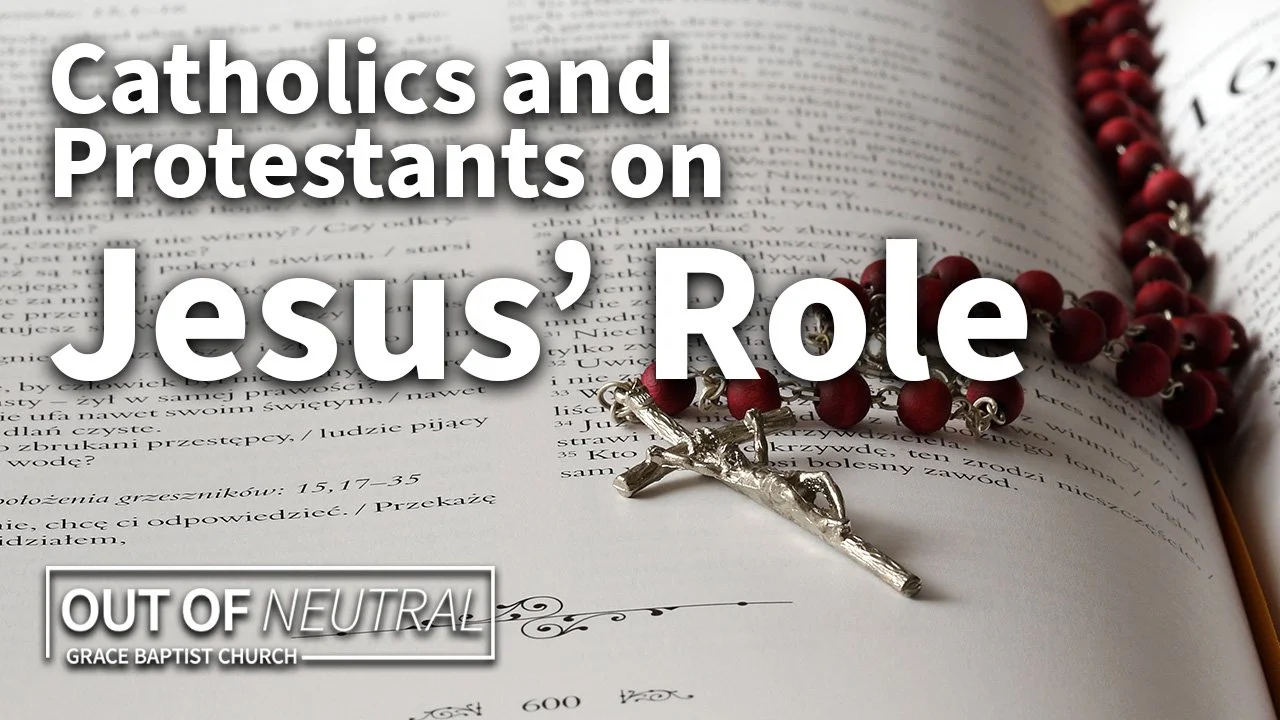Click on the image above for the video of this article or keep reading below for the text version.
I read of a conversation Robert Webber had with another man. They were talking about religion and the man tried to capture the essence of his faith in a single line. He said, “We’re all part of the problem, and we’re all part of the solution.” Webber responded with his own one-line summary: “We’re all part of the problem, but there is only one man who is the solution. His name is Jesus.” The distinction between those two answers is at the heart of what distinguishes Christianity from what many people believe today.
Webber’s description of his faith comes from Jesus’ own words. For example, in John 14:6, He said, “I am the way, and the truth, and the life. No one comes to the Father except through me.” He saw Himself as the exclusive means by which people can be made right with God. He didn’t just point to heaven; He claimed to be the path to get there.
This was the message of the early church also. In Acts 4:12, for instance, Peter declared, “And there is salvation in no one else, for there is no other name under heaven given among men by which we must be saved.” He made that statement at a time when society was marked by a myriad of different gods. And yet, he had the conviction that Jesus was the only one who could provide salvation.
Paul passed the same message along to those whom he taught. In his letter to Timothy, he wrote, “there is one God, and there is one mediator between God and men, the man Christ Jesus, who gave himself as a ransom for all” (1 Timothy 2:5-6). A mediator is someone who brings together two sides that are in conflict and tries to make peace between them. There are obviously many mediators in the world, but there is only one mediator between God and man. That’s different than saying that the Raptors are the only basketball team. There’s only one mediator because He’s the only one who “gave himself as a ransom for all.” His death on the cross for sinners is the basis for our salvation and so He’s the only means by which we can make peace with God.
The Catholic understanding of this is different. In the catechism, Mary is given the title “Mediatrix.” Article 969 says, “Taken up to heaven she did not lay aside this saving office but by her manifold intercession continues to bring us the gifts of eternal salvation .... Therefore the Blessed Virgin is invoked in the Church under the titles of Advocate, Helper, Benefactress, and Mediatrix." Catholic.com explains that “Mary’s title of mediatrix arises from her cooperation in the Incarnation and in the Redemption of mankind.” The Bible is clear on Mary’s role in the incarnation - she did give birth to Jesus – but it’s silent on any role in redemption.
Does calling her a Mediatrix avoid the conflict with the statement that Jesus is the “one mediator between God and man?” It’s hard to imagine how it could. And yet Catholic.com responds with the following: “In 1 Timothy 2:5, which refers to Jesus as the "one mediator," the Greek word for "one" is heis, which means "first" or "primary" and does not denote something exclusive. In fact, we are all mediators when we pray for one another.” The word for “one” here occurs more than 300 times in the New Testament and almost every single time it’s translated as “one” rather than “first” or “primary.” More importantly, the same word is used before “God” in the same verse. Surely, there, it doesn’t mean that there is a first or primary God.
Protestants believe that salvation is found in Jesus alone. Catholics teach that Mary is the “Helper.” Protestants believe that there is only one mediator between God and men. Catholics teach that there’s a Mediator and a “Mediatrix.” Where have you put your faith? Who are you trusting to save you? Is Jesus alone the solution or is Jesus just part of the solution?
May God guide you in His truth.
In awe of Him,
Paul











